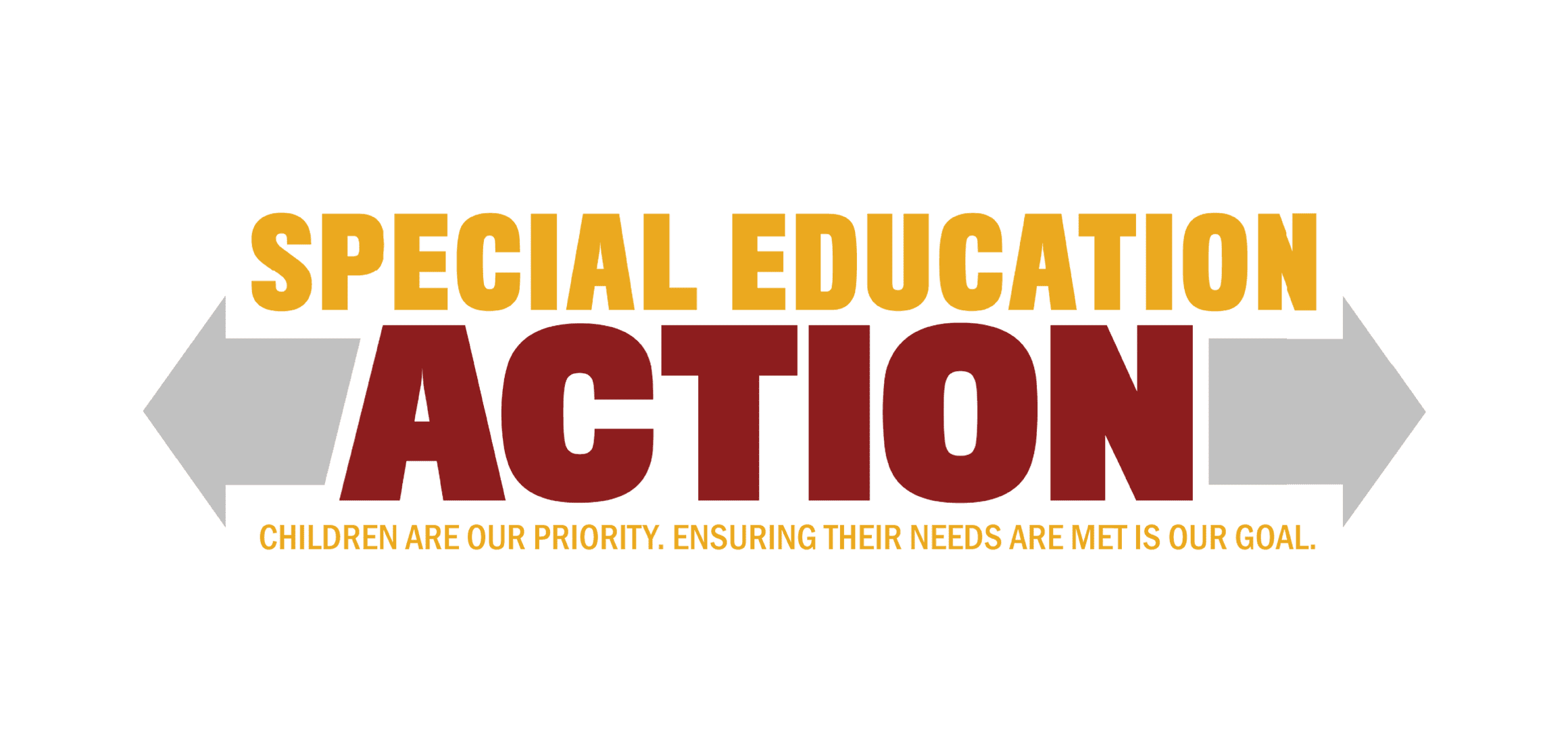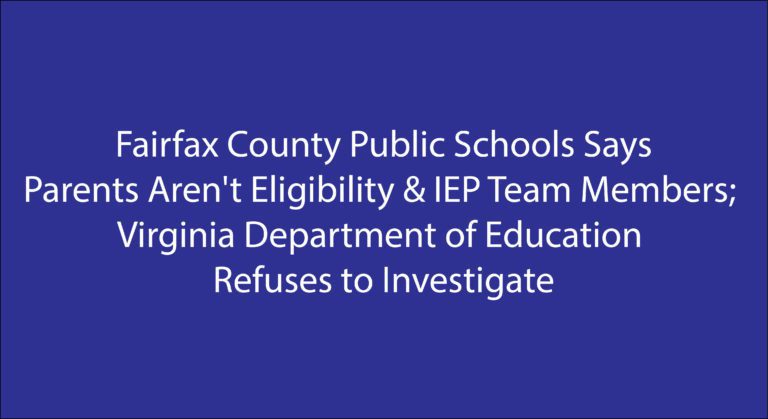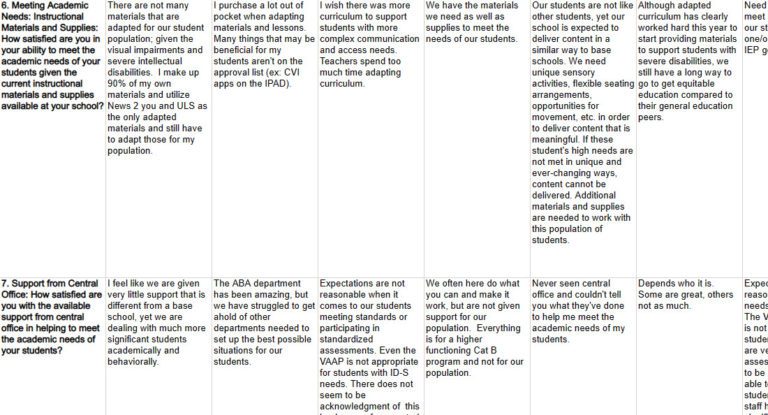
Special Education Action is a 501(c)3 nonprofit publisher covering special education.
Its mission is to ensure parents, educators, and students have the information and tools necessary to fully understand, address, and safeguard the unique needs of all students who require special education.
Recent Articles
Are Parents Members of IEP Teams and Eligibility Teams? Yes!
Parents have key roles in evaluations preceding eligibility determinations, in the actual eligibility determinations, and in IEP development following determinations. For evaluations, as one example, members must draw upon information from various sources, including parent input. This doesn’t mean schools simply have to consider parent input and then decide if they’ll use it or not. They are required to draw from parent input.
In this article, you’ll find federal regulations (as well as Viriginia regs for those in the area), that define and guarantee parents’ rights.
VA Dept. of Ed Opens Systemic Investigation into Fairfax County Public Schools: Team Composition
The complaint alleges that specifically, since at least 2017, FCPS has engaged in the following: a) holding IEP meetings that are in noncompliance with IDEA and implementing state regulations; b) unauthorized practice without a license; c) unlicensed “diagnosis and treatment of human physical or mental ailments, conditions, diseases, pain, or infirmities”; d) procedural violation of Parent’s and Student’s opportunity to participate in the decision-making process regarding the provision of FAPE to Student.
Fairfax County Public Schools Says Parents Aren’t Eligibility & IEP Team Members; VA Dept of Education Refuses to Investigate
In other words: FCPS is in noncompliance for refusing Parents rights’ to be deciding members of eligibility and IEP teams.
A Response to Intervention Cannot Be Used To Delay Or Deny An Evaluation For Special Education Services
According to the U.S. Department of Education (USDOE), in its 1.29.19 Letter to Zirkel, “IDEA does not define RTI . . . RTI is only mentioned in IDEA when determining eligibility for specific learning disability. 20 U.S.C. § 1414(b)(6)(B) and 34 C.F.R. § 300.307(a)(2).”
However, the United States Department of Education has stated that, “States and LEAs have an obligation to ensure that evaluations of children suspected of having a disability are not delayed or denied because of implementation of an RTI.”
Fairfax County Students & Educators in Crisis; FCPS Delays Release of Damning Data
Data collected from a survey of administrators and staff at FCPS’s five day schools—Burke, Cedar Lane, Key Center, Kilmer School, Quander Road—indicates the schools are understaffed, under-resourced, and woefully unable to meet the academic, functional, and behavioral needs of their students. In addition, staff are struggling on a day-to-day basis with their workloads, while simultaneously being concerned about the safety of the students and of themselves.
Virginia Remains Outlier as U.S. Dept. of Education Announces Close-Out of Monitoring in Arizona, Delaware, Florida, Hawaii, and Arizona
USDOE announced monitoring of Hawaii in 2019; of Arizona, Florida, and Virginia in 2020; and of Delaware in 2021. USDOE closed out monitoring of four of the five states within one-to-three years.
In the case of Virginia, it is on track to take more than three years to come into compliance with Individuals with Disabilities in Education Act (IDEA).





